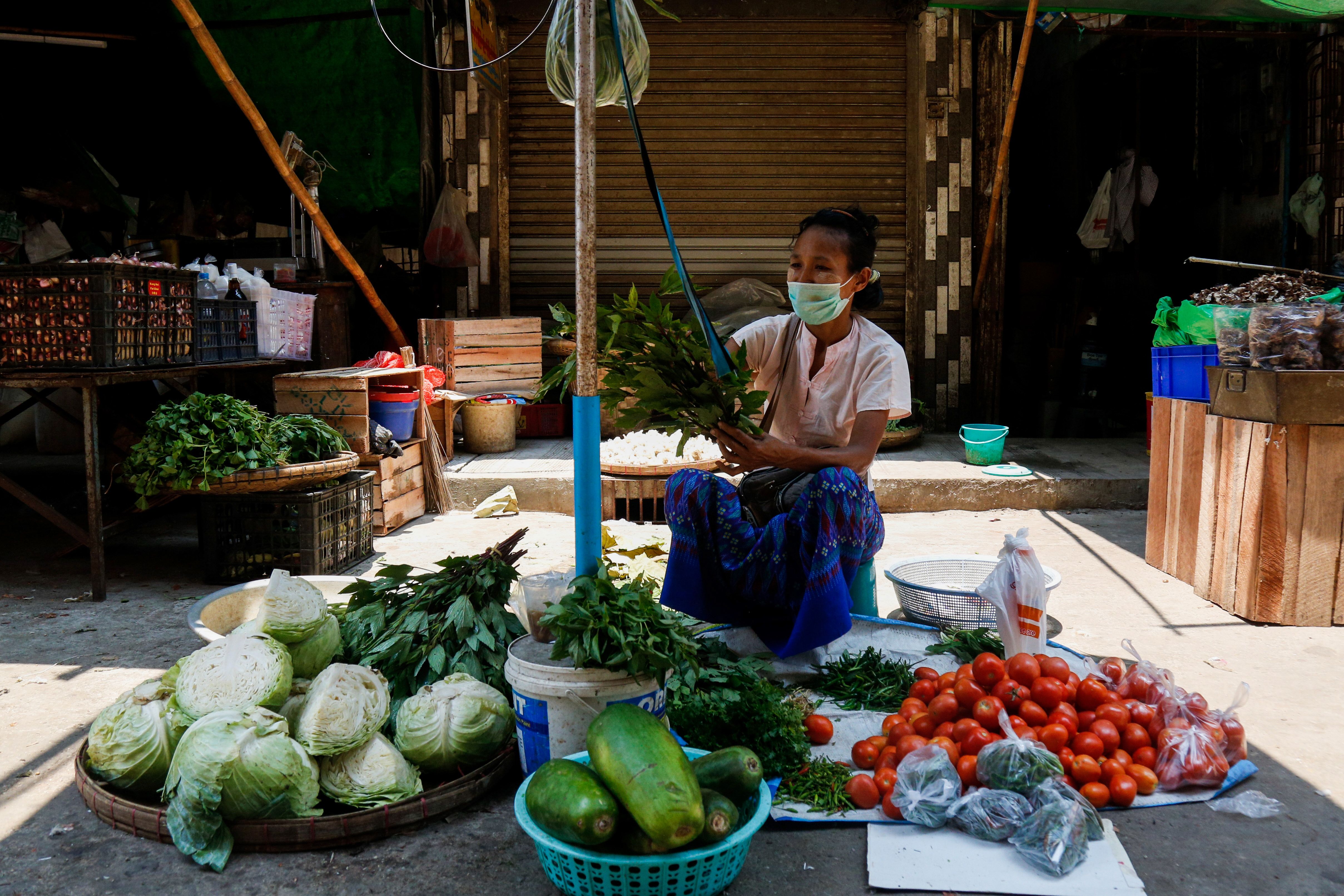Rise of Myanmar food prices ‘troubling’, says UN agency
The World Food Programme said that food prices were rising

Your support helps us to tell the story
From reproductive rights to climate change to Big Tech, The Independent is on the ground when the story is developing. Whether it's investigating the financials of Elon Musk's pro-Trump PAC or producing our latest documentary, 'The A Word', which shines a light on the American women fighting for reproductive rights, we know how important it is to parse out the facts from the messaging.
At such a critical moment in US history, we need reporters on the ground. Your donation allows us to keep sending journalists to speak to both sides of the story.
The Independent is trusted by Americans across the entire political spectrum. And unlike many other quality news outlets, we choose not to lock Americans out of our reporting and analysis with paywalls. We believe quality journalism should be available to everyone, paid for by those who can afford it.
Your support makes all the difference.The UN food agency said on Tuesday that rising food and fuel prices in Myanmar since the 1 February military coup risked undermining the ability of poor families to feed themselves.
Myanmar has been in turmoil since the military ousted the elected government and detained its leader, Aung San Suu Kyi, with protests and a civil disobedience campaign of strikes paralysing parts of the economy.
The World Food Programme (WFP) said food prices were rising with palm oil 20 per cent higher in some places around the main city of Yangon since the beginning of February and rice prices up four per cent in the Yangon and Mandalay areas since the end of February.
Read more:
In some parts of Kachin State in the north, the price of rice was up as much as 35 per cent, while prices of cooking oil and pulses were sharply higher in parts of Rakhine State in the west, the WFP said in a statement.
The cost of fuel had risen by 15 per cent nationwide since 1 February, raising concerns about further food price increases, it said.
“These rising food and fuel prices are compounded by the near paralysis of the banking sector, slowdowns in remittances, and widespread limits on cash availability,” the WFP said.
The agency’s country director, Stephen Anderson, said the signs were troubling: “Coming on top of the Covid-19 pandemic, if these price trends continue they will severely undermine the ability of the poorest and most vulnerable to put enough food on the family table.”
A spokesman for the ruling military council did not respond to telephone calls seeking comment. State media has this week reported farmers expecting good prices for their crops of onions and chickpeas.
The WFP is helping to support more than 360,000 people in Myanmar, most of them displaced by conflict over the past decade.
The agency reiterated a call from the UN secretary-general for the will of the Myanmar people expressed in November elections to be respected, Mr Anderson said, adding: “At WFP we know all too well how hunger can quickly follow when peace and dialogue are sidelined.”
The military defended its coup saying its complaints of fraud in a November election won by Suu Kyi’s party had been ignored. The election commission said the vote was fair.
A total of 183 people have been killed by security forces in protests against the coup, a rights monitoring group said.
Myanmar, once Asia’s main rice basket, was among the region’s poorest countries after the military seized power in a 1962 coup and imposed an autarchic “way to socialism”.
The economy boomed after the military began to withdraw from politics a decade ago.
Reuters
Join our commenting forum
Join thought-provoking conversations, follow other Independent readers and see their replies
0Comments